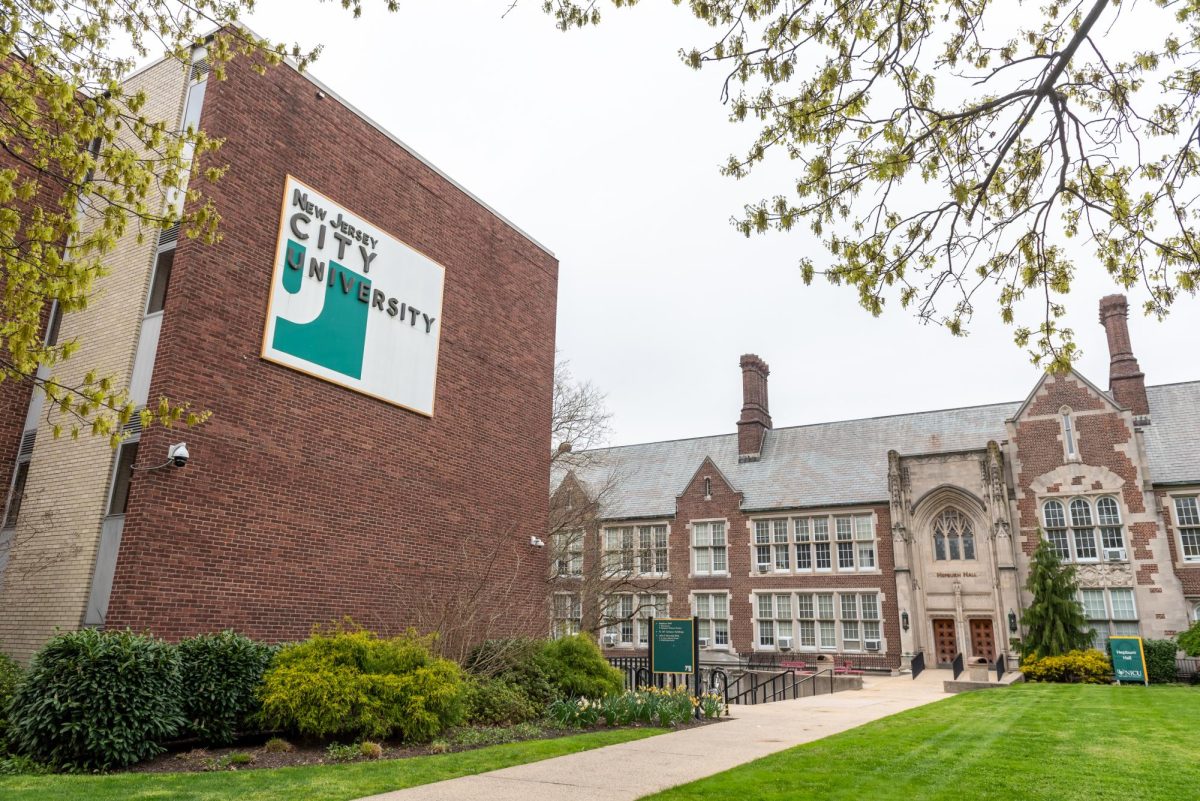By Monir Khilla—
In an exclusive interview with The Gothic Times, AFT Local 1839 executive members – the union that represents faculty and staff – responded to comments made by Aaron Aska, Vice President of Administration and Finance, in the November issue of The Gothic Times.
According to Dr. Ivan Steinberg, Professor of Economics and President of AFT Local 1839, the remarks were erroneous and they “violated the spirit of an agreement that took place years ago by the council of New Jersey state college locals and representatives of state colleges. Our Vice President [of administration and finance] has broken this long-term unwritten agreement.”
Dr. William Calathes, Professor of Criminal Justice and Vice President of AFT Local 1839 said that “Vice President Aska, in a way in his comments, is doing something massively unethical. He’s attacking collective bargaining rights; by him taking a position publicly he’s undermining the credibility of the current negotiations by suggesting the mechanisms for these negotiations are something that will no longer exist. He’s selling faculty and students down the river by suggesting it would be better to have a break-up of the Unions.”
“That is utterly incorrect,” Aska said, responding to Steinberg’s and Calathes’ charges. “Nothing I said has a bearing on collective bargaining. I did say salaries are negotiated. That is factual. My interview was with a student who was trying to understand the budget process.”
In a now-controversial interview with the Gothic Times, published November 16, 2011, Aska said, “Salary costs compromise approximately two-thirds of the total budget. In the contract that the union negotiated they have built in increases. This has nothing to do with the university, the state negotiated that with the union. They are localizing those contracts, but we’re not there yet. So our contracts are not different than Montclair or Kean. They’re all a product of collective bargaining.”
Dr. Steinberg and Calathes both agreed that “Vice President Aska should apologize to every member of the union for his comments.”
“I don’t think I said anything that merits an apology,” Aska said. “I met with Ivan Steinberg for half an hour last week. None of this came up. He expressed concerns, in general, but nothing specific.”
With questions, proposals, and cuts to education, why cant’ the school can’t negotiate with the unions directly?
Dr. Steinberg explained that this would put many schools at a disadvantage because some don’t have a large student body. The smaller schools would not be able to attract professors and there would be a bidding-war if colleges would pick individual salaries. Professors in certain departments would make more than others.
The budget strain NJCU is facing has raised questions over how the budget is handled and how money is being allocated and appropriated.
“The Union has serious concerns regarding the administration’s mismanagement of the budget. There’s no accounting of the revenue losses that are going to take place as a result of the upcoming cuts in the Winter intersession, Spring, and Summer classes,” said Dr. Calathes.
“There was a precipitous drop in enrollment which affected revenue. The mistake they made was ‘next year will be better,’” said Dr. Steinberg.
Many students have gotten word of cuts to their classes, and some students have even been dropped from classes they’re already enrolled in. There will be cuts to classes and sections, but none to the administration.
“One of my concerns is that if you combine sections, many students who schedule their classes around work will end up dropping the class and prolong their graduation,” said Dr. Gordon, Professor and Chairperson of the Health Sciences Department.
According to Dr. Calathes, “I don’t see any cuts in anything in the administration. If I was a student I’d be upset over not being notified until the end of the semester, especially after there are classes being cut that students are already enrolled in, the administration is not participating in this shared sacrifice. The faculty here took the hit on the furloughs. We had to have mandated furloughs while the administration had much less. They refuse to sit-down with us and talk about the shared sacrifice.”
Dr. Gail Gordon added that “The CWA, the lowest paid union, had to take ten days of furloughs it was ridiculous.”
Dr. Calathes said “Have the administrators given up their courses? It not only hurts students when you cut courses but you take advantage of the most exploited group on this campus, adjunct professors, who are underpaid and contribute financially to the school.”
Vice President Aska also encouraged students to call and lobby their state legislatures, but according to Dr. Calathes, the administration has done nothing to help students and unions.
“AFT folks have been down in Trenton all summer long, along with students, I didn’t even see one administrator there. The students have a right to know what the administration has done in their relationship to the state to lobby and advocate for this campus,” said Calathes.
Through all the utension and exchanged words, the nion does agree that there have to be talks with the administration, as well as students.
Dr. Calathes said that “The students, the unions, and the administration should work together. There shouldn’t be a hierarchy where somebody says we have to have tuition raises and cut courses and pretend the chairs are cutting courses. We took the union and student position that nobody should cut a course unless they’re told to do so. Maybe they’ve been doing the best they can, but we need them to work with the unions.”








Jack • Dec 9, 2011 at 3:45 am
When was the drop in enrollment that Dr. Steinberg is referencing?
In the print version of the The Gothic Times, this article was opposite to the SGO article. I find that funny since the SGO article shows that SGO received $136k additional revenue from increased enrollment for 2011-2012.
GothicTimesMonir • Dec 13, 2011 at 5:58 pm
Jack
The drop in enrollment occured this semester was due to a decreased amount in decrease – yes that’s worded correctly. NJCU predicted they would have LESS students than they actually did, thus throwing their projections off for revenue and courses. “Next year will be better,” but this year wasn’t that bad.
For example, they could project a decrease of 100 students. However they only had a decrease of 20, which throws off their budget.
Monir Khilla
Jack • Dec 15, 2011 at 3:42 am
That explains everything, thanks.